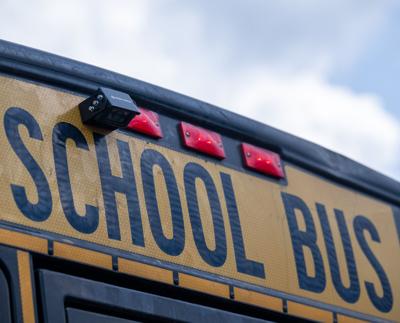A shortage of drivers is once again holding back East Baton Rouge Parish in its efforts to improve its much-maligned student transportation system.
Superintendent LaMont Cole on Thursday persuaded the parish School Board to approve new incentives to cover the hole:
- A nearly $5-per-hour increase in the rate it pays current drivers willing to run extra routes.
- A finder's fee of up to $500 for school employees who refer someone to be a bus driver, and that person stays a while.
In a letter to the board, Cole said the latest changes are needed because there is “a shortage of available drivers, leaving several routes unassigned.”
Rob Howle, director of transportation, said the district is short 49 active drivers.
Faced with a similar shortage this spring, the school system hired private school bus giant First Student to take over six routes. Howle said that he reached out recently to First Student about potentially re-upping the contract and said he was told the company was too tied up with finding sufficient drivers for its current clients locally.
The rate for running extra routes is increasing from $13.29 to $18.00 per hour.
“I think it’s going to allow us to cover some of those routes,” Howle said.
Howle said that two years ago, the district increased its hourly rate for summer school routes, and this past summer, there was a waiting list of interested drivers.
The new $500 finder’s fee, described as a “recruitment stipend," will be paid out in two installments: $250 when the recruited driver is trained and has driven 30 days; and $250 after the recruited driver “completes 180 consecutive days of employment.”
“I think it’s going to get us some drivers,” Howle predicted.
Howle said he thinks that the person who stands to receive $500 will lean on the recruited driver to ensure they get trained and that they keep driving for the required number of days.
Unassigned routes have dogged the school system for years and were a key cause of the bus crisis that marked the start of the 2023-24 school year. That year, a severe shortage of drivers and working buses resulted in many children being stranded or delayed in getting to and from school.
The district has made strides to improve its bus fleet since then, making sure almost every bus is air-conditioned. This past summer, buses were outfitted with new security cameras with live remote access, GPS tracking, motion-sensor activation, as well as cloud-based and on-bus video data backup.
Routes were reworked this summer with an eye toward greater efficiency with the help of Prismatic, a transportation consulting firm based in Charlotte, North Carolina. Six schools are piloting new start times, which could expand districtwide over the next year.
Prismatic also persuaded leaders to establish uniform spacing of bus stops — 0.25 miles between each — as well as eliminating many stops that were within a mile of school; transportation is not legally required for students who live that close to their school.
Those changes, however, sparked fresh complaints from some affected parents, some of whom have said they were unaware of the changes.
Historically, the school system has had a bad reputation in how well it followed up on such complaints. On Thursday, Cole said a recently adopted new AI-based customer service platform known as “Let’s Talk” is making a difference. He said since the start of school earlier this month, there have been 5,410 “Let’s Talk” dialogues, and about 91% of those are complaints about transportation.
Of all the dialogues, 89% have been resolved, leaving almost 600 that are not yet resolved.


